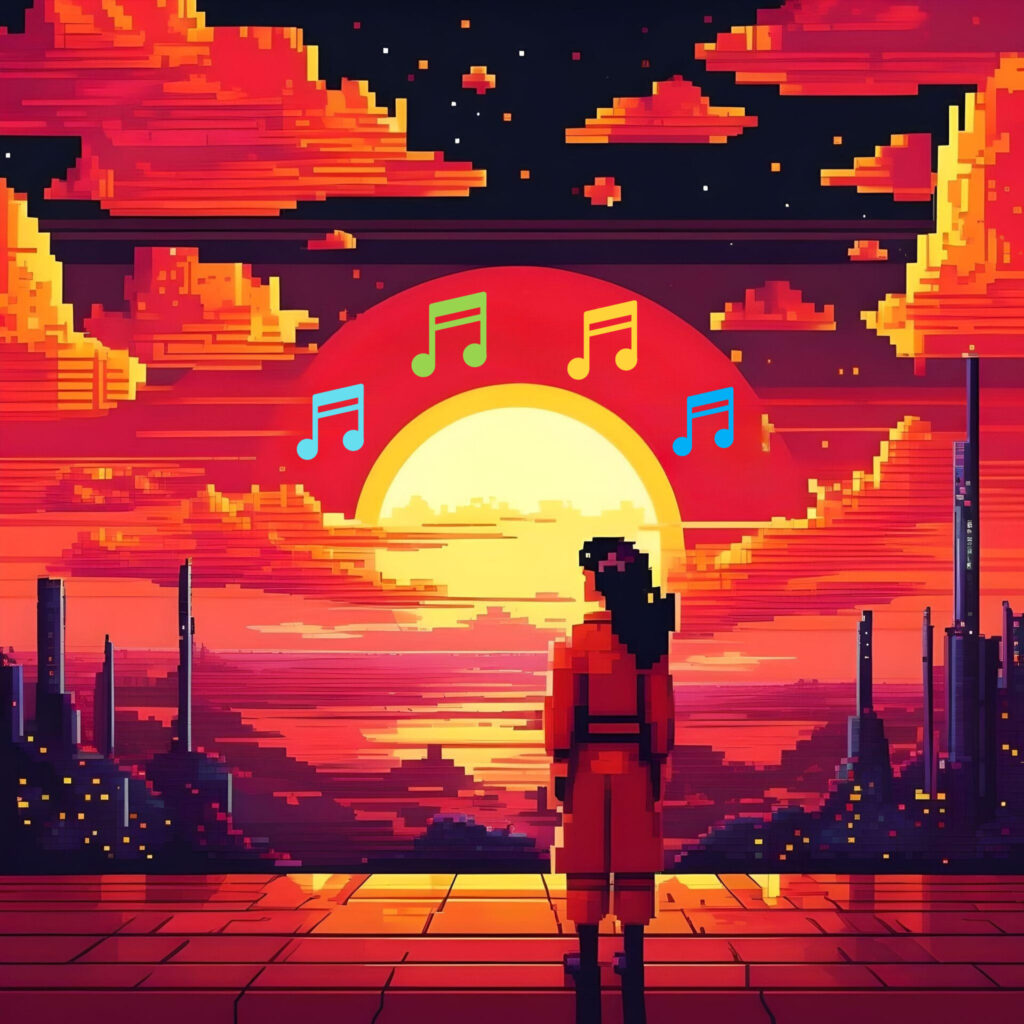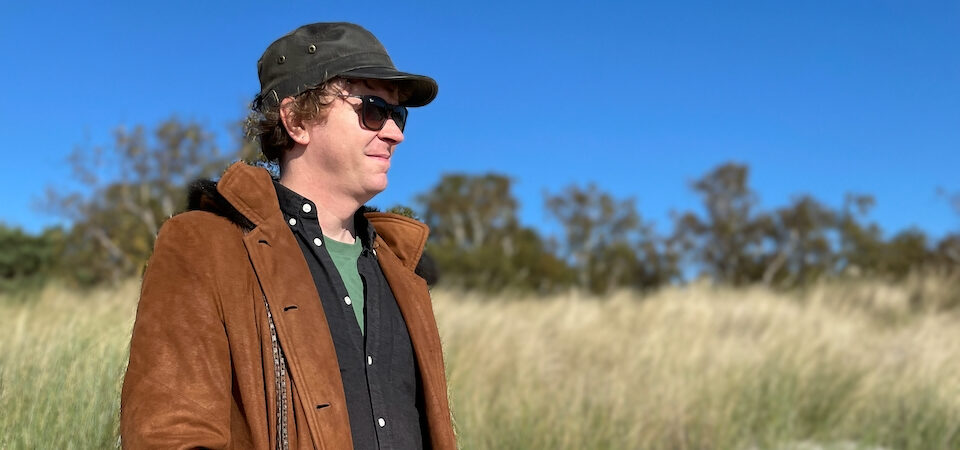Swedish indie pop label Stars in Coma has released a new EP!
The “Reality Denier EP” genre exercises are a bit of a mixed bag, but imagine a musical landscape in which Sly & The Family Stone and The Postal Service collide and jam out sci-fi R&B tunes in space, all while emulating the cheap synthetic essence of Stars in Coma around 2008. Get ready for a unique experience that combines pop culture references, strange chord progressions, in-your-face synths, and longing lyrics about the artist’s favorite theme: alienation! Check out the exclusive interview below:

1. Can you tell us a bit about where you come from and how it all got started?
STARS IN COMA: I come from a small town in the south of Sweden and I have lived in Malmö (the third biggest town in the country) for most of my life now. I launched Stars in Coma in 2005 as a bedroom pop project for my own twee-ish indie-pop songs that I had accumulated over the years, then it slowly evolved to a regular studio and live project, doing gigs all over Europe mainly.
2. For most artists, originality is first preceded by a phase of learning and, often, emulating others. What was this like for you? How would you describe your own development as an artist and music maker, and the transition towards your own style, which is known as POP?
STARS IN COMA: In my early days, there wasn’t much of a quality control and I was throwing out songs on Myspace (remember that?) on a fast-paced schedule. Nowadays, I’m much more of a perfectionist and I’m taking longer between releases, for better or for worse. I would like to be a little more spontaneous again, but I don’t really have that youthful energy and devil-may-care attitude anymore. I think my development has been in the production field and perhaps in the lyrical content. My musical songwriting abilities I feel are still basically the same and still feel I love music as much as did when I was 25.
3. Who were your first and strongest musical influences and why the name ‘STARS IN COMA?
STARS IN COMA: I’ve always enjoyed melodic stuff. My earliest favorite band when I was four years old was GYLLENE TIDER, a Swedish act that was hugely popular in the early 80s. Lots of great melodies and lyrics about teenage problems. Then I went from heavy metal to euro disco to Green Day to Blur. I can appreciate all sorts of music that has an enticing hook. As for the name STARS IN COMA, it just came to me one day in the early 00s. I don’t know why, but I’ve always been fascinated by space so maybe that was it?
4. What do you feel are the key elements in your music that should resonate with listeners, and how would you personally describe your sound?
STARS IN COMA: I’ve always enjoyed well-produced pop music that has some unconventional element, and that’s what I’m trying to make as well, be it a weird rhythmic sound or a harmonic deviation. I’ve always loved songwriters such as Brian Wilson or David Bowie who use unexpected chord progressions, I’m definitely trying to work in that tradition. Sometimes I’ve described my music as prog-pop, but usually it fluctuates between indie pop, electro pop, guitar rock and indie folk.

5. Did you have any formal training or are you self-taught?
STARS IN COMA:
No, I’m pretty much self-taught, but I had a really strong desire to play and make music from an early age.
6. What’s your view on the role and function of music as political, cultural, spiritual, and/or social vehicles – and do you try and affront any of these themes in your work, or are you purely interested in music as an expression of technical artistry, personal narrative, and entertainment?
STARS IN COMA: I’m a bit conflicted about this. There’s a case to be made for being apolitical with your music, and perhaps there is a sense now that people are a bit tired of artists who are taking a strong stance on social media on a particular political issue. I’m not sure it’s advancing anything, people just want some escapism from the ongoing polarization in the world. At the same time, I’m a keen observer of the whole societal and political landscape, and I also have some strong opinions about various things. However, my opinions are always changing so I’m not consistent in that sense. I think that’s part of being creative, to constantly ask questions but never really know the answers. I feel that the role of art is to communicate a more holistic take of the world with all its contradictions and absurdities. And in that regard, some of the songs on the new ”Reality Denier EP” are sort of patchwork of various political social media comments that I read over the years. But it’s also just poetry that is not to be taken that literally.
7. Creative work in a studio or home environment, or interaction with a live audience? Which of these two options excites you most, and why?
STARS IN COMA: Definitely the creative process in my home studio. Playing live can be fun, but it comes with a lot of preparations and logistics.
8. Could you describe your creative processes? How do usually start, and go about shaping ideas into a completed song? Do you usually start with a tune, a beat, or a narrative in your head? And do you collaborate with others in this process?
STARS IN COMA: It usually starts on the acoustic guitar. I like to sit in front of the TV with low volume and just playing. If something interesting comes up, I record it on my phone. Then if it’s really good, I take it to my home studio and either use Reason Studios or Logic to record it.
9. What has been the most difficult thing you’ve had to endure in your life or music career so far?
STARS IN COMA: The most difficult thing is the slow realization that no one cares that much about your creative output, or at least not to the extent that you care about it. I used to feel a real sense of bitterness about this a few years ago, but now I’m a bit more zen about it. So this realization in turn creates this view that creative and non-creative live in different universes, that a non-musician will never really understand what it’s like to be a hassling musician. And then we have to develop this thick skin cause we’re actually quite sensitive. For instance, it’s a big deal if friends and family members don’t show up to your gig or listen to your latest release, but we don’t act like it matters. To be a musician is generally to live a life of disappointment, but at the same time we are ”forced” to convey this image of success on social media and in the real world. To be creative is to obsessively conjure up endless ideas that no one will ever grasp or care about, except one or two if you’re lucky. I’m not saying this to whine; I feel it’s important to accept cause otherwise, the whole music business game will slowly eat you alive. There’s never a true moment where you’re satisfied. It doesn’t matter if you’re an unknown bedroom pop indie songwriter or a semi-famous artist, you will generally always hunger for more likes and more validation. However, true happiness can never be found in temporary external objects. Of course, this divide between creative and non-creative people is totally arbitrary, it’s just a concept in your mind. But when you’re in the thick of it, it feels very real!
10. On the contrary, what would you consider a successful, proud or significant point in your life or music career so far?
STARS IN COMA: So having said all of that negative stuff above, the creative process can be REALLY fun and rewarding. When a song resonates with someone, it’s an amazing feeling! It has to be a reason why we continue right? As for career moments, I’m proud we did some great live shows a couple of years ago, most notably at the NYC Popfest, Indietracks and Indiefjord. I’m proud that I’ve managed to continue making music for a long period of my life and I hold some of my records – including ”The Confessional Sun” (2014) and ”Midnight Puzzle” (2012) – very dear to my heart.
KEEP IN TOUCH:
FACEBOOK | INSTAGRAM | SPOTIFY | BANDCAMP | YOUTUBE

